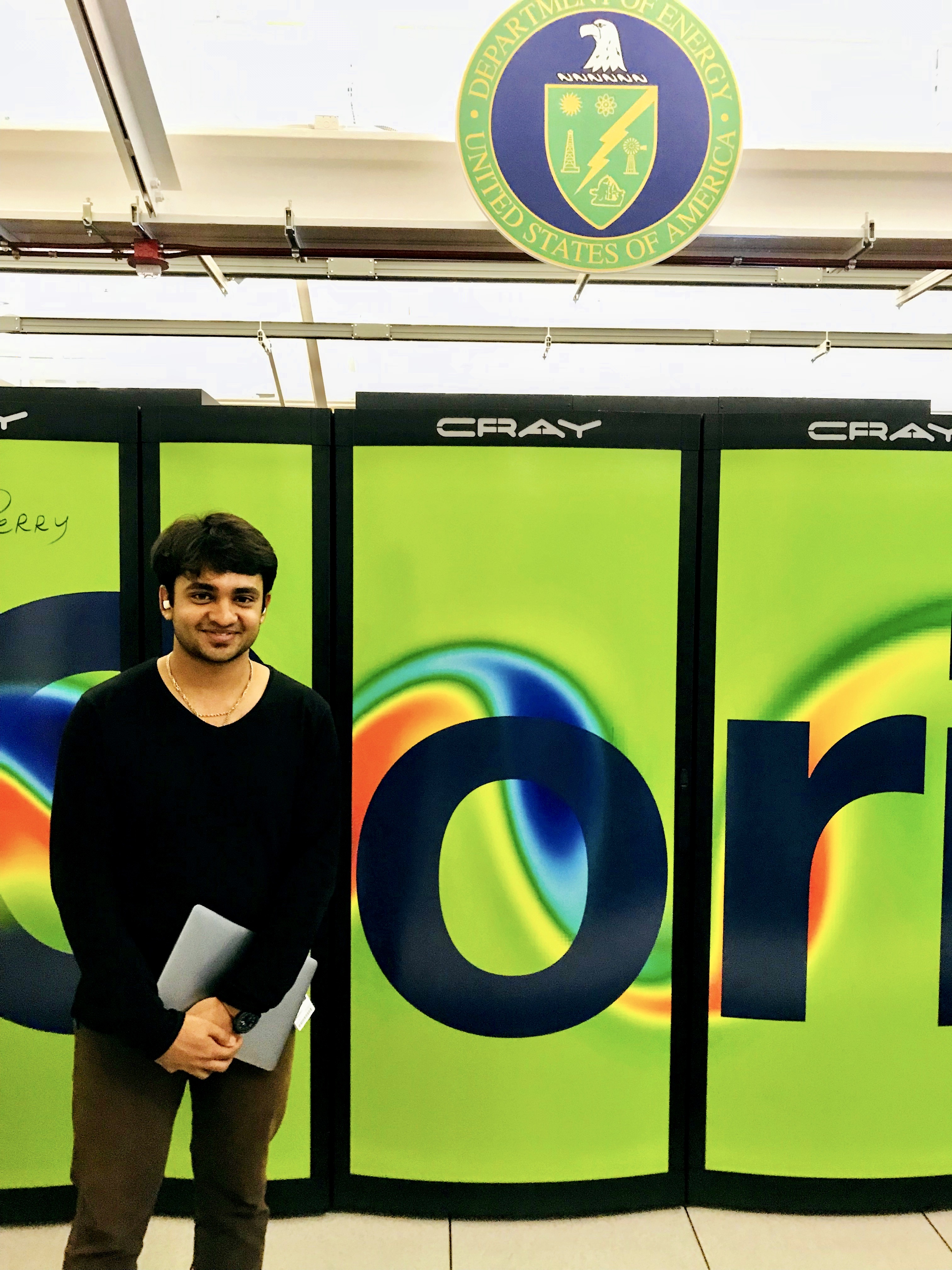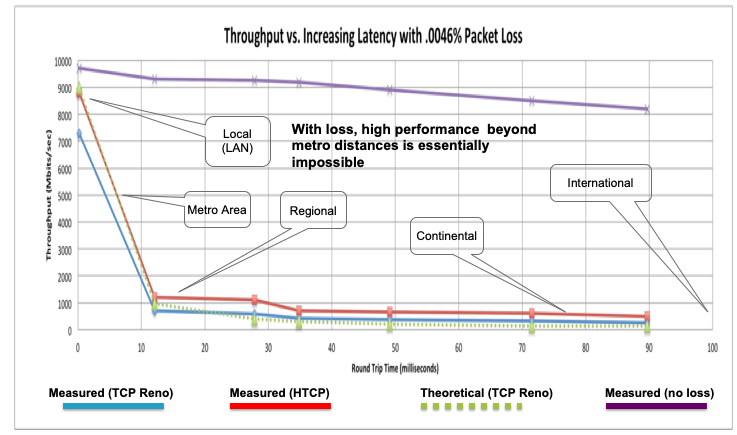CSE doctoral student contributed to work on data transfer node optimization while completing Energy Sciences Network internship
The award-winning paper, “Exploring the BBRv2 Congestion Control Algorithm for use on Data Transfer Nodes,” was co-authored by scientists and engineers from the Energy Sciences Network (ESnet), where Adhikarla recently completed an internship.
ESnet is a “high-performance, unclassified network built to support scientific research,” supported by the U.S. Department of Energy. It connects more than 50 DOE sites to 140 other networks, managing a high demand of data transfers ranging from megabytes to petabytes.
During his internship, Adhikarla worked at the intersection of machine learning, statistical analysis, and high-performance computing in data transfer nodes (DTNs). In their work on DTN optimization, the team analyzed loss-based congestion control algorithms.
“Our goal was to find out the optimal algorithm based on the given network and the characteristics of the data,” says Adhikarla.
Network data analysis presented in the paper demonstrates how Google’s BBRv2 is more resilient to packet loss in a way that CUBIC is not. The work shows that previous results that were tested on simulating the DTN environment are valid. However, in some cases, the DTN use case demonstrates an even more significant advantage for BBRv2, as parallel flows and speed mismatch lead to higher packet loss.
In a related project, Adhikarla worked on designing the DTN-as-a-Service (DTNaaS) API, which can predict TCP configurations for better managing TCP flows. The goal was to deploy and optimize the performance of the data movement across various sites.
At Lehigh, Adhikarla is advised by Brian D. Davison, a professor of computer science and engineering. Davison also serves as an associate director of the Institute for Data, Intelligent Systems, and Computation (I-DISC).
Adhikarla earned his MS in computer science from Lehigh and holds a BE in computer science from Rajiv Gandhi Proudyogiki Vishwavidyalaya (India). His research interests include deep learning, computer vision, and trustworthy AI.



